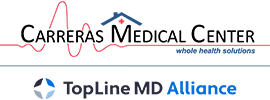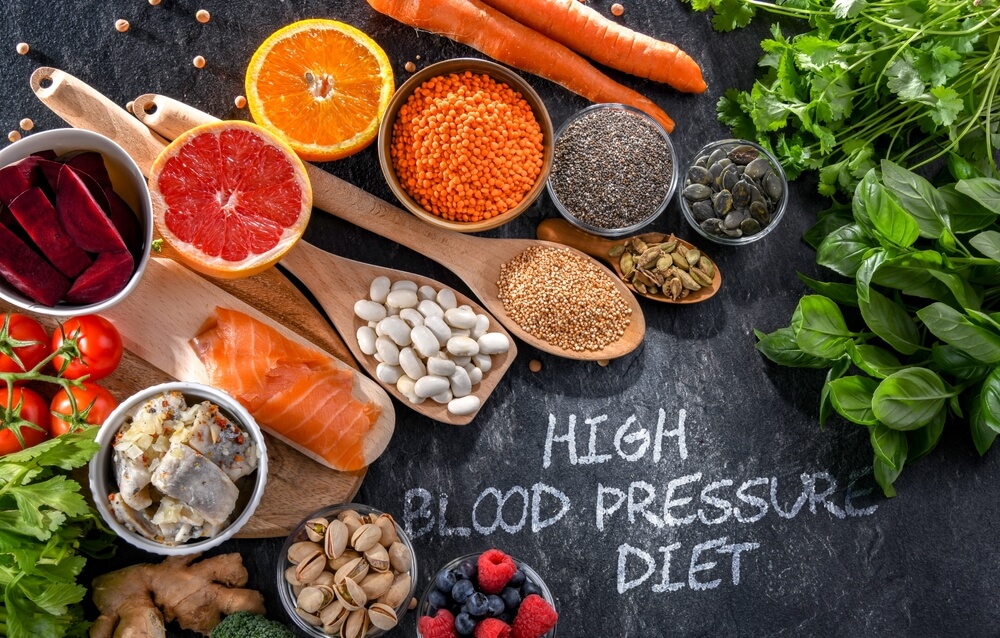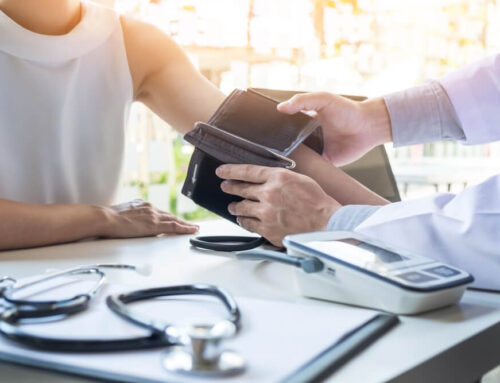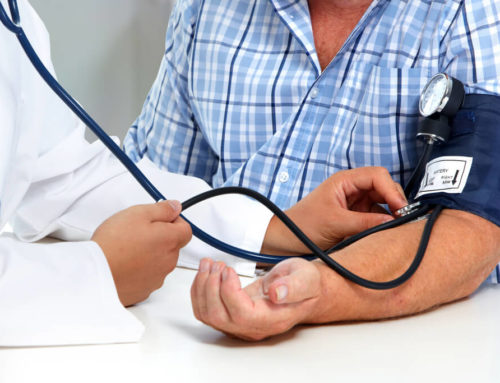As you may know, hypertension or high blood pressure can be the first major sign of heart problems. If left unaddressed, high blood pressure can damage the arteries and lead to severe complications (such as a heart attack).
Those who have been battling with high blood pressure for some time can find that our Internal medicine specialist in Hialeah, FL, can help them lower their blood pressure with the help of medication.
On the other hand, our experts also know that educating patients about the benefits of sticking to a high-blood-pressure diet minimizes the negative impact of dietary choices on hypertension.
That said, in this article, our team has compiled a list of foods to avoid with high blood pressure and also listed a few helpful tips to improve your diet and decrease the possible risks associated with hypertension.
In-Short: Foods That Raise Blood Pressure
As you may know, high blood pressure affects almost half (47%) of adults in the US. Foods high in salt can particularly lead to high blood pressure as it leads to fluid retention, thus raising blood volume and blood pressure. High-fat and sugary foods may also cause the same.
Conversely, eating a healthy diet filled with whole foods can help you keep your blood pressure within healthy ranges.
For example, the AHA (American Heart Association) recommends filling your diet with whole grains, vegetables, fruits, and lean proteins. At the same time, the association also recommends avoiding the foods that cause hypertension, such as sodium, red meat, and beverages and foods containing added sugar.
Foods That Raise Blood Pressure
Sodium (Salt)
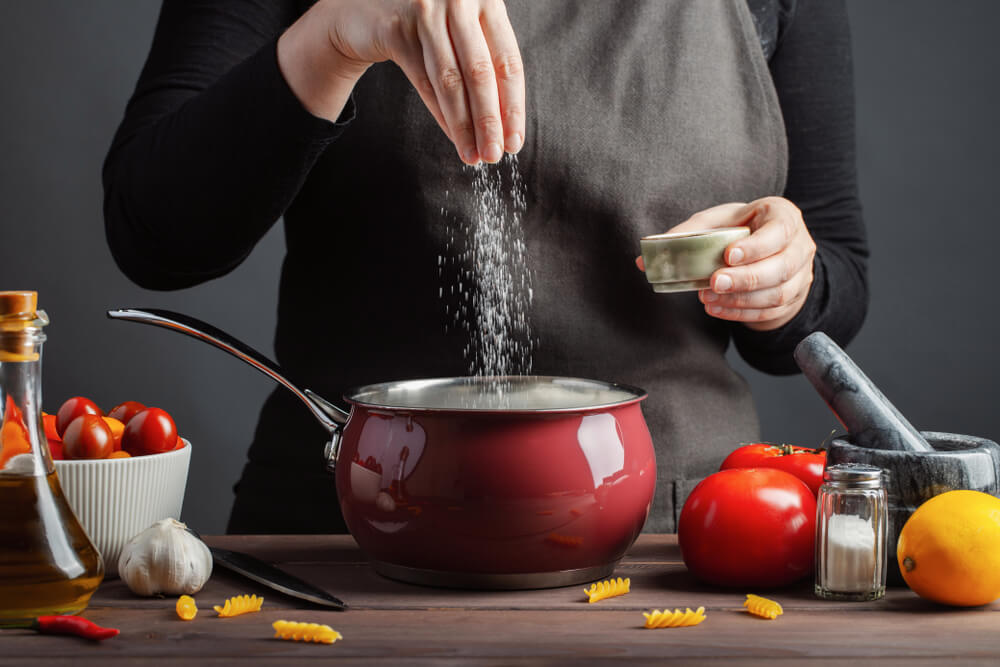
When discussing the foods that cause hypertension, experts will usually put salt and sodium on top of the list, as the latter is a major contributor to hypertension, primarily because of its effects on the body’s fluid balance.
And while salt is essential for health, overconsuming it can cause medical issues. The AHA recommends consuming around one teaspoon of salt daily.
Sugar
Sugar can lead to hypertension in a couple of ways. For starters, overconsuming sugar can lead to weight gain, which can increase the chances of high blood pressure. Additionally, it may directly affect hypertension, but more research is necessary to support these claims fully.
As such, the AHA recommends limiting sugar intake to around 25 grams for women and about 36 grams for men.
Deli Meats
Processed meat is usually filled with sodium, making them potential foods that raise blood pressure if overconsumed. Typically, manufacturers will use salt to preserve, cure, and season these meats. For that matter, some of these meats can contain way too much sodium, and combining them with other high-salt choices like cheese, bread, pickles, and other condiments means that even a single sandwich can become a food to avoid with high blood pressure.
Pizza or Frozen Pizza
Pizza is another one of those “bad foods for high blood pressure,” as they are usually high in sodium, saturated fat, and sugar. The combination of the pizza dough and the toppings usually make for a fatty, sugary, and salty cocktail that can potentially lead to hypertension.
For example, a standard 12-inch frozen pepperoni pizza can contain 3,140 mg of sodium, while the recommended daily intake is only 2,300 mg.
As such, it makes more sense to opt for homemade pizza with low-sodium cheese, homemade dough, and vegetable toppings with lean proteins.
Canned Soups and Tomato Products
While easy to prepare, canned soups, and often packaged stocks, and broths are high in sodium, meaning they are generally viewed as bad foods for high blood pressure. For example, a typical can of vegetable or chicken soup may contain a total of 2,140mgs of sodium.
Unfortunately, canned tomato products like pasta sauces, tomato sauces, and juices are also high in sodium.
While these are usually foods that raise blood pressure, you can find low-sodium options for soups and canned tomato products. Still, homemade soups and fresh tomatoes are your best options.
Pickles
Similarly to deli meats, preserving pickles also require salt, and the longer the vegetables stay in the preserving liquids, the more sodium they will contain. On that end, a small pickle can contain as much as 448mg of sodium, so opt for lowered sodium options if you can.
Alcohol
Drinking too much can also increase blood pressure. At the same time, if you are already dealing with hypertension, your provider might recommend cutting back on alcohol. Some studies suggest that drinking less can lower hypertension and might lower the risk in those who have normal blood pressure.
On the other hand, alcohol can interfere with the effectiveness of blood pressure medications. Also, some of these drinks contain excess calories and can be high in sugar, leading to hypertension.
Lastly, consuming too much alcohol can lead to a myriad of different complications and medical issues, so limiting your intake is never a bad choice.
Foods High in Saturated or Trans Fats
An effective, high-blood-pressure diet will usually limit the consumption of trans and saturated fats, especially for those who already have hypertension.
Trans fats and saturated fats can lower good cholesterol (HDL) and raise bad cholesterol, increasing the chances of developing high blood pressure.
Typically, pre-prepared and packaged options will be high in these fats, making them foods to avoid with high blood pressure. These same foods will often be filled with low-fiber carbohydrates, sodium, and sugar.
Saturated fats can usually be found in animal products, such as dairy products, butter, chicken skin, and red meat.
The AHA advises limiting these fats in your diet to optimize your heart health. One way to do that is to opt for plant-based alternatives to some animal foods. These plant-based foods (like olive oil, seeds, nuts, and avocado) usually contain healthy fats, like poly- and monosaturated fatty acids.
Foods to Eat With Hypertension
Generally, eating heart-healthy foods is the best way to reduce your blood pressure naturally. As such, opt for a diet that is centered around the following foods:
- Fish and poultry
- Vegetables
- Fruits
- Legumes and nuts
Also, some research suggests that minerals and specific compounds such as potassium, nitrates, fiber, and antioxidants can help not just with hypertension but with improving overall heart health as well.
Considering the DASH Diet
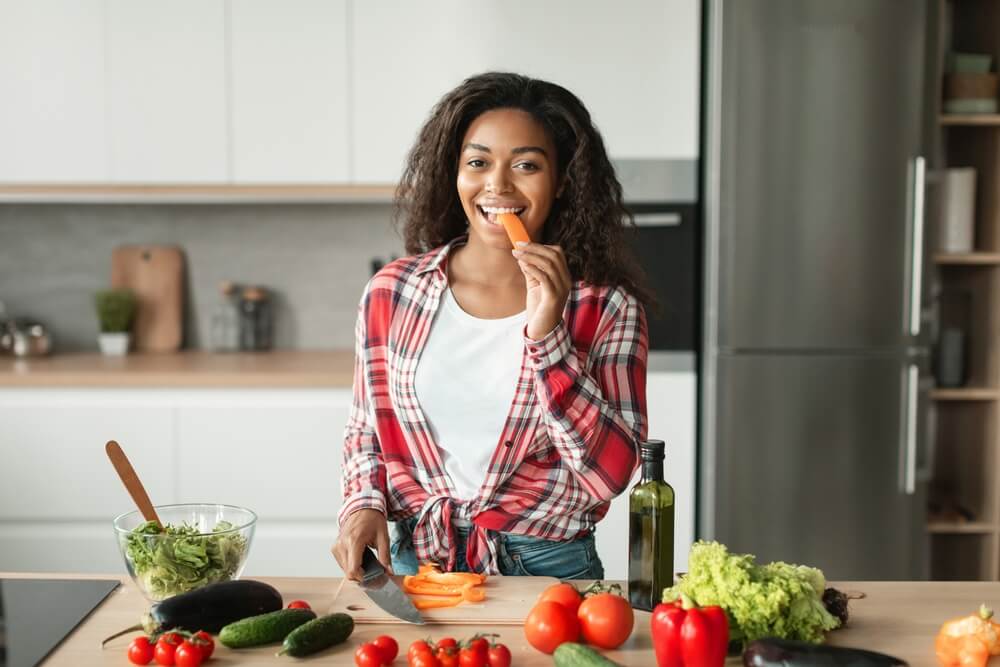
The AHA recommends this diet to those who want to manage hypertension better. DASH, or “dietary approach to stop hypertension,” was a diet created back in the 1990s, and the latest medical reviews from 2020 confirm that it can help reduce blood pressure both in people with and without hypertension
In short, the diet revolves around focusing on the following foods:
- Vegetables like carrots, green beans, broccoli
- Fruits like bananas, apples, and strawberries
- Seeds and legumes like kidney beans, sunflower seeds, and lentils
- Whole grains like brown rice, whole wheat pasta, and oatmeal
- Lean protein like fish or skinless chicken meat
- Nuts like walnuts and almonds
- Low-fat dairy, like reduced-fat cheese and fat-free milk
Learn More From Experts
Hypertension shouldn’t be dismissed, as the condition can lead to more complications and damage one’s heart health over time. Eating a healthy, blood-pressure-friendly diet is probably the first step to managing hypertension or avoiding it altogether.
On that end, if you’d like to learn more about the condition or about the necessary dietary approaches, feel free to contact Carreras Medical Center today.
